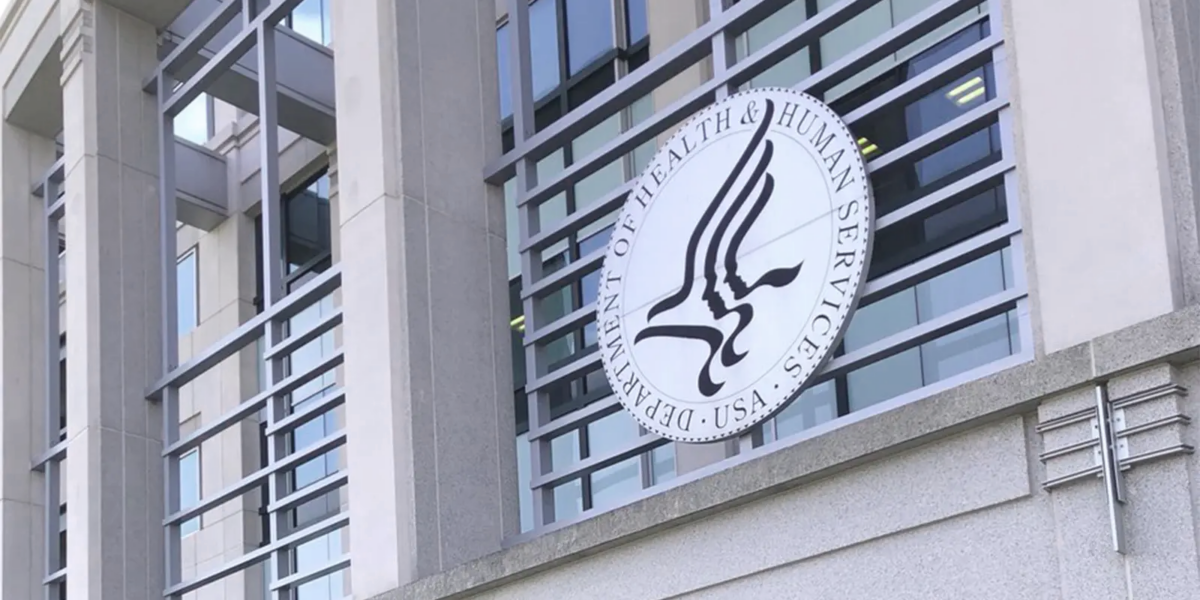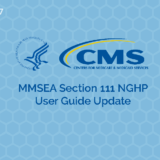CMS published the latest version of the WCMSA Reference Guide as Version 2.9 (Reference Guide or Guide) on January 4, 2019. In addition to changes announced in Section 1.1 of the Reference Guide titled Changes in This Version of the Guide, there are several other changes made that were not announced. The announced changes were as follows:
Version 2.9 of the guide includes the following changes:
• To eliminate issues around Development Letter and Alert templates auto populating with individual Regional Office (RO) reviewer names and direct phone numbers, these will now display the generic “Workers’ Compensation Review Contractor (WCRC)” and the WCRC customer service number “(833) 295-3773” (Appendix 5).
• Per CMS’ request, certain references to memoranda on cms.gov have been removed.
• The CDC Life Table has been updated for 2015 (Section 10.3).
• Updates have been provided for spinal cord stimulators and Lyrica (Sections 9.4.5 and 9.4.6.2)
Below, in numerical order, please find some of the main changes made by CMS, many of which were not announced in Section 1.1 quoted above. Sections, titles and additions have been bolded for emphasis and ease of reading.
A change in Section 4.1.1, titled Commutation and Compromise, on page 4, was one of the announced changes, and omits the previous Reference Guide’s reference to the July 2001 WC Regional Office (RO) Memorandum known in the industry as the Patel Memo. This is consistent with the statement in Section 1.0 that the Reference Guide “. . . reflects information compiled from all WCMSA Regional Office (RO) Memoranda issued by CMS, from information provided on the CMS website, from information provided by the Workers Compensation Review Contractor (WCRC), and from the CMS WCMSA Operating Rules. The intent of this reference guide is to consolidate and supplant all historical memoranda in a single point of reference. Please discontinue the reference of prior documents.” The concept is that the Reference Guide is the policy of CMS and prior documents or Memos it has issued should not be referred to or otherwise used to support a party’s position regarding matters addressed in the Reference Guide unless it continues to be referenced in the Reference Guide.
Section 4.2, titled Indications That Medicare’s Interests are Protected, has a new unannounced on page 5 bullet stating:
• CMS’ voluntary, yet recommended, WCMSA amount review process is the only process that offers both Medicare beneficiaries and Workers’ Compensation entities finality, with respect to obligations for medical care required after a settlement, judgment, award, or other payment occurs. When CMS reviews and approves a proposed WCMSA amount, CMS stands behind that amount. Without CMS’ approval, Medicare may deny related medical claims, or pursue recovery for related medical claims that Medicare paid up to the full amount of the settlement, judgment, award, or other payment.
Medivest’s take on the subject: CMS makes it sound enticing for Workers’ Compensation entities by using the word “finality.” Many parties have used the voluntary process to obtain approvals but have felt there has been a lack of consistency in review standards, especially from one contractor to another. Blogs and websites of many other companies that prepare Medicare Set-Aside (MSA) allocations indicate that they have experienced an increase in surprise counter highers over expenses like off-label prescription drug use as well as some other medical services when submitting WCMSAs to CMS for approval. As a result of what may have been perceived as a lack of consistency or perhaps a lack of confidence that the counter highers reflect real-world evidence-based needs of injured parties, many settling parties have seemed less inclined to choose submission as a regular practice, even when WC settlements fall within the CMS workload review thresholds, opting instead to follow the Medicare Secondary Payer Act, 42 U.S.C. § 1395y(b) et. seq. ��(MSP), and its corresponding regulations, instead of the voluntary policies of CMS.
On pages 8-9, under Section 8.1, titled Review Thresholds, two new unannounced examples have been included as follows:
Example 1: A recent retiree aged 67 and eligible for Medicare benefits under Parts A, B, and D files a WC claim against their former employer for the back injury sustained shortly before retirement that requires future medical care. The claim is offered settlement for a total of $17,000.00. However, this retiree will require the use of an anti-inflammatory drug for the balance of their life. The settling parties must consider CMS’ future interests even though the case would not be eligible for review. Failure to do so could leave settling parties subject to future recoveries for payments related to the injury up to the total value of the settlement
($17,000.00).
Example 2: A 47 year old steelworker breaks their ankle in such a manner that leaves the individual permanently disabled. As a result, the worker should become eligible for Medicare benefits in the next 30 months based upon eligibility for Social Security Disability benefits. The steelworker is offered a total settlement of $225,000.00, inclusive of future care. Again, the steelworker [typo fixed] is offered a total settlement of $225,000.00, inclusive of future care. Again, there is a likely need for no less than pain management for this future beneficiary. The case would be ineligible for review under the non-CMS-beneficiary standard requiring a case total settlement to be greater than $250,000.00 for review. Not establishing some plan for future care places settling parties at risk for recovery from care related to the WC injury up to the full value of the
settlement.
Medivest’s take on the subject: These examples illustrate CMS’s position that Medicare’s future interests need to be considered even if the dollar amount of the judgment, settlement, award or other payment does not meet the CMS workload review thresholds. The examples emphasize that CMS considers the establishment of a plan for future care to be a priority and that CMS is serious about protecting Medicare’s future interests. These examples further spell out that CMS reserves the right to request an injured party to fully exhaust the amount of money equal to the entire settlement (not mentioning anything about allowing for a reduction of procurement costs such as attorney’s fees and costs expended to obtain the settlement typically allowed to be deducted under MSP regulations when parties timely request to resolve conditional payment/Medicare liens) when an injured party who is compensated for future medicals, fails to establish a plan for future care.
On page 9 under Section 9.0, titled WCMSA Submission Process Overview, CMS allows for a WCMSA proposal to be submitted either by paper or CD to the Benefits Coordination & Recovery Center or online via the WCMSA Portal (WCMSAP) and clarifies that these are the only acceptable submission delivery methods to be used.
In Section 9.4.5, titled Medical Review Guidelines, under the subsection heading Spinal Cord Stimulators on page 22, the following language was added to change the former policy of not including lead implantation in revision surgeries to the newly adopted policy whereby “Routine replacement of the neurostimulator pulse generator includes the lead implantation up to the number of leads related to the associated code. Revision surgeries should only be used where a historical pattern of a need to relocate leads exists.”
In Section 9.4.5, titled Medical Review Guidelines, under the subsection Pricing for Spinal Cord Stimulator (SCS) Surgery on page 22, the following text was inserted “SCS pricing is based on identification of: 1.) Rechargeable vs. Non-rechargeable and 2.) Single vs. Multiple Arrays (leads). If unknown, CMS will default to non-rechargeable single array.”
In Section 9.4.5, titled Medical Review Guidelines, under the subsection Pricing for Spinal Cord Stimulator (SCS) Surgery on page 22, the following language was deleted: “Preadmission Testing will be included where appropriate.”
In Section 9.4.5, titled Medical Review Guidelines, under the subsection Pricing for Spinal Cord Stimulator (SCS) Surgery, a table titled Table 9-3: Spinal Cord Stimulator Surgery CPT Codes on page 24, was expanded from three procedure (CPT) codes previously listed for Post Placement System Testing to a total of 12 including the same Post Placement System Testing as well as a series of CPT codes for Pre-Placement Psychological Testing, Anesthesia, and various other codes for the implantation procedures, etc. along with detailed descriptions of each.
In Section 9.4.6.2, titled Pharmacy Guidelines and Conditions, under the subsection Medically Accepted Indications and Off-Label Use, on page 28, there are now two detailed examples of off-label use instead of only one off-label use example in the prior version. The additional language appears in bold as follows:
Example 1: Lyrica (Pregabalin) is cited in MicroMedEx for an off-label medication use related to neuropathic pain from spinal cord injury, and a number of scientific studies indicate that Pregabalin shows statistically significant positive results for the treatment of radicular pain (a type of neuropathic pain). Spinal cord neuropathy includes injuries directly to the spinal cord or its supporting structures causing nerve impingement that results in neuropathic pain. Lyrica is considered acceptable for pricing as a treatment for WCMSAs that include diagnoses related to radiculopathy because radiculopathy is a type of neuropathy related to peripheral nerve impingement caused by injury to the supporting structures of the spinal cord.
Example 2: Trazodone” – which was previously described as – “Trazodone is approved by the FDA for the treatment of major depressive disorder,
but is commonly given off-label to treat insomnia. So the WCRC would include trazodone in a WCMSA if used to treat insomnia, if it is related to the workers’ compensation injury.”
Medivest’s take on the subject: This seems to be a situation where the new WCRC has been including more off-label drugs in its counter highers than the prior contractor, with the expensive drug Lyrica, gaining the most industry attention. Entities submitting WCMSAs for approval should be aware of the language referred to on page 28 of the Reference Guide that cites the Medicare IOM (Internet Only Manual) rules concerning Medicare covered off-label usage. The standard is as follows, “FDA approved drugs used for indications other than what is indicated on the official label may be covered under Medicare if the carrier determines the use to be medically accepted, taking into consideration the major drug compendia, authoritative medical literature and/or accepted standards of medical practice accepted, taking into consideration the major drug compendia, authoritative medical literature and/or accepted standards of medical practice.” Because this standard is so broad and the CMS and its WCRC seems to be taking an expansive approach to what types of off-label use is determined to be includable, parties seeking to control costs but still interested in CMS submission should consider professional consultations with treating physicians as to whether there are less costly medications and/or alternate treatment/prescription doses that can be utilized, implemented, and confirmed as equally effective, prior to submission.
Under Section 10.4 Section 20 – Life Care / Future Treatment Plan, page 43, a new statement “A Future Treatment Plan is required in the absence of a Life-Care Plan” makes it clear that there is a minimum requirement for future treatment to be listed in a submitted allocation in absence of a Life-Care Plan.
Medivest’s take on the subject: This is not really news because the term Future Treatment Plan existed in the prior Reference Guide’s title for this section. This seems to be a way to bring some consistency to the idea and to tie the term Future Treatment Plan together with the terms Future Treatment and Future Treatment Summary that also appear (and previously appeared) in the section.
In Section 10.5.2, titled Use of WC Fee Schedule vs. Actual Charges for WCMSA, on page 43, the state of Virginia was removed from the list of states that do not have a state Workers’ Compensation (WC) Fee Schedule. The states that do not have a WC fee schedule currently are Indiana, Iowa, Missouri, New Hampshire, New Jersey, and Wisconsin. The Reference Guide instructs, “Do not use a fee schedule in a state that does not have a fee schedule.”
Under Section 16, titled Re-Review, there are three subheadings describing circumstances under which a party may request a Re-Review. Under the subheadings of Mathematical Error and Missing Documentation on page 55, the following unannounced Note was inserted:
Notes:
• Disagreement surrounding the inclusion or exclusion of specific
treatments or medications does not meet the definition of a mathematical error.
• Re-Review requests based upon failure to properly review already submitted records must include only the specific documentation referenced as a basis for the request.
Under the third subheading titled Amended Review, the criteria and information remained the same, but the information was reformatted as follows with a phrase added to last note bullet in bold:
• CMS has issued a conditional approval/approved amount at least 12 but no more than 48 months prior.
• The case has not yet settled as of the date of the request for re-review.
• Projected care has changed so much that the submitter’s new proposed amount would result in a 10% or $10,000 change (whichever is greater) in CMS’ previously approved amount.
• Where a re-review request is reviewed and approved by CMS, the new approved amount will take effect on the date of settlement, regardless of whether the amount increased or decreased.
• This new submission may be delivered in both paper and portal formats. Please see the WCMSAP User Guide for more information.
In order to justify that the projected care would result in a 10% or $10,000 change (whichever is greater), the submitter must return CMS’ Recommendation Sheet that was included in CMS’ conditional approval letter and identify the following:
• Line items that were included in the approved amount, but are for care that has already been provided to the beneficiary. Please identify where references to records indicating that the care has already been provided can be found in the updated proposal.
• Line items for care that is no longer required. Please identify where references to replacement treatment can be found in the updated proposal.
• If additional care is required that was not otherwise included in CMS’ conditional approved amount, please add line items.
Notes:
• In the event that treatment has changed due to a state-specific requirement, a life-care plan showing replacement treatment for denied treatments will be required if medical records do not indicate a change.
• The approval of a new generic version of a medication by the Food and Drug Administration does not constitute a reason to request an amended review for supposed changes in projected pricing.
• CMS will deny the request for re-review if submitters fail to provide the above-referenced justifications with the request for re-review.
• Submitters will not be permitted to supplement the request for re-review, nor will they be developed.
Under Section 17.3 Use of the Account on Page 57, the bolded language replaced prior language on the subject:
“Please note: If payments from the WCMSA account are used to pay for services other than Medicare-allowable medical expenses related to medically necessary services and prescription drug expenses for the WC settled injury or illness, Medicare will deny all WC-injury-related claims until the WCMSA administrator can demonstrate appropriate use equal to the full amount of the WCMSA.”
Medivest’s take on the subject: CMS is indicating that Administrators have the burden to show appropriate use of MSA funds and therefore, must keep accurate records to prevent mistaken denial of injury related Medicare covered claims by Medicare after MSA funds are exhausted.
Under Chapter 18 titled CMS Submission, after the sentence, “Additionally, the contractor must ensure that Medicare makes no payments related to the WC injury until the WCMSA has been used up”, the following language was added on page 60:
This is accomplished by placing an electronic marker in CMS’ systems used to pay or deny claims. That marker is removed once the beneficiary can demonstrate the appropriate exhaustion of an amount equal to the WCMSA plus any accrued interest from the account. For those with structured settlements, the marker is removed in any period where the beneficiary exhausts their available funds; however, it is replaced once the anniversary fund deposit occurs until the entire value of the WCMSA is demonstrated as entirely exhausted.
Medivest’s take on the subject: This is the first indication of an “electronic marker” and gives an idea of how the CMS computer system will be flagging those injury related medicals submitted for payment by Medicare, but that Medicare may deny.
In Appendix 4, WCRC Proposal Review Reference Tools on page 69, the link to CMS Memos and written references to CMS Memos going back to 2001 were removed.
All references in Appendix 5. Sample Letters to Sherri McQueen, as Acting Director, were changed to Sherri McQueen, Director, Financial Services Group Office of Financial Management.
In the Development Letter Sample, the CMS Regional Office Contact reference and contact phone numbers were removed and replaced with “the Workers’ Compensation Review Contractor (WCRC) at (833) 295-3773” on pages 81 and 85.
Medivest’s take on the subject: The WCRC now has the responsibility to field calls regarding submission of WCMSAs instead of the CMS Regional Offices.
Medivest will continue to follow changes in policy at CMS and in the actions of its Workers’ Compensation Review Contractor, Capitol Bridge, LLC, and will keep our readers up to date on developing trends.

















